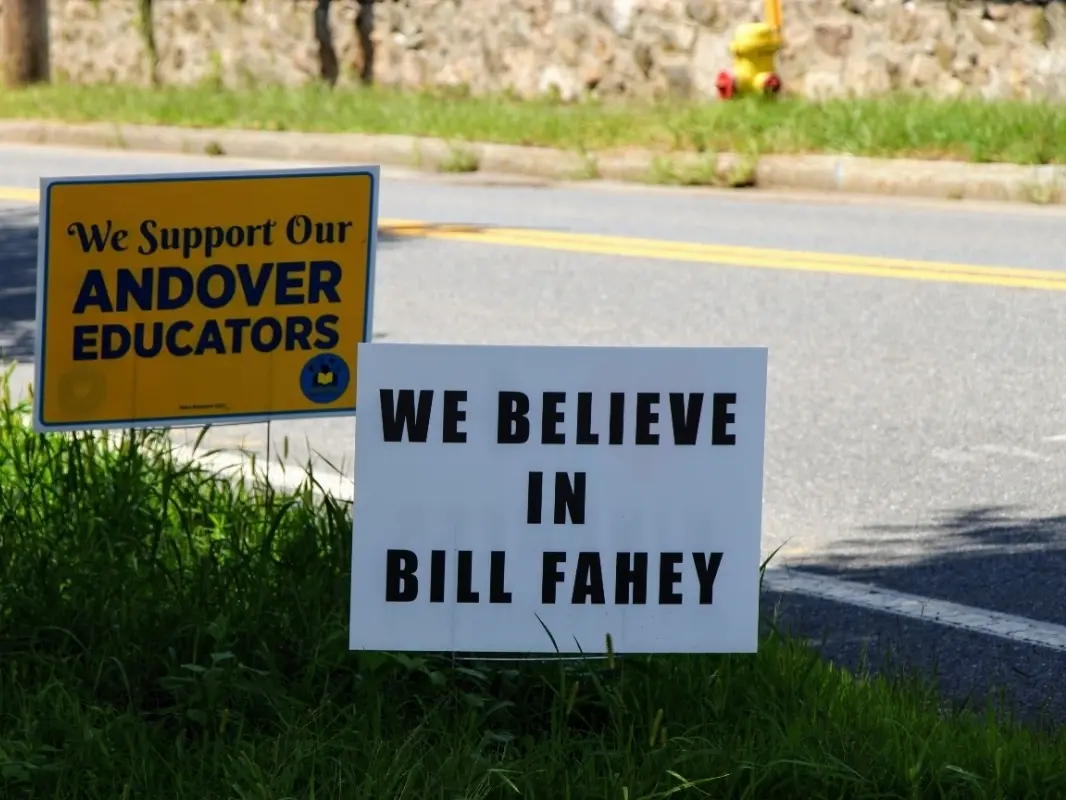Former Andover Youth Services Director Bill Fahey will not be allowed to be a present when a witness at the center of his lawsuit against Andover Town Manager Andrew Flanagan gives her deposition.
Lawyers for Flanagan requested the protective order earlier this month, saying her “mental health will be harmed if she is forced to be in the same room with Mr. Fahey.” The woman, identified only as MJ in court documents, provided information that Fahey “engaged in improper conduct with a minor,” leading to a Town investigation and, ultimately, his termination.
“This court finds good cause based on the nature of the claims involving the relationship between the plaintiff and the defendant,” Essex Superior Court Judge Elizabeth Dunigan wrote in her ruling Thursday.
In his complaint, Fahey said Flanagan “targeted” him for termination for more than five years before firing him on May 10, 2021. The firing came after the town-commissioned, independent investigation found Flanagan had “sufficient evidence” to fire Fahey, even though the investigation found some of the allegations, including that he had inappropriate contact with a minor, were not credible.
Andover denied most of the allegations in Fahey’s lawsuit in its response to the complaint. Fahey has repeatedly denied the allegations and disputes the independent investigator’s report. His firing led to the resignation of AYS’s entire full-time staff in September 2021.
Plaintiff’s presence could cause ‘annoyance, embarrassment, mental anguish”
Dunigan, who denied Fahey’s request for a hearing on the protective order earlier this month, said allowing Fahey to be present at the deposition in California raised “the risk of annoyance, embarrassment, mental anguish to the defendant.”
According to documents released in November from Fahey’s appeal in Lawrence District Court of the Town’s denial of his unemployment claim, the investigator found he overstepped boundaries, including counseling MJ, a former AYS client who worked in the pornography business, in a series of “very personal” text messages, according to previously undisclosed portions of the report.
Fahey “often crossed boundaries by hugging program participants and telling them that he loved them,” the ruling said. The ruling also said Fahey went to the home of MJ’s mother in 2016 after learning she had moved to California and was working in pornography.
“She denied the rumors about her daughter, whereupon Plaintiff provided her with her daughter’s stage name, and he helped her search and discover the pornographic material,” a summary of the investigator’s report in the unemployment claim ruling said.
Text message exchanges lasted for months
When MJ returned for a visit to Andover in 2019, she met Fahey at the Youth Center from about 9 p.m. until after midnight, with the investigator noting they were alone in the building. Fahey drove her home and, after the meeting, sent text messages telling her he loved her and she was beautiful.
The message exchanges continued for several months, during which time the woman said she was working in pornography and was upset over choices she had made. In a series of texts reviewed by the investigator, Fahey continued to counsel the woman without conferring with AYS staff and social workers, even though his role “was that of a director and supervisor; he was not to act as a counselor.”
“If you expect to find peace in your heart and joy in your life then you must learn to use your compass,” Fahey said in one message sent from his Town-issued phone. “So what if you did porn? It’s just a reaction to your pain.”
He signed off another message by saying “Love you always.”
“The review examiner reviewed other text communications that were very personal and demonstrated the Plaintiff’s efforts to counsel [MJ] as she dealt with trauma and emotional distress,” Monday’s ruling said. “The social workers and staff workers from the AYS program neither counseled [MJ] nor or were they ever introduced to her.”

